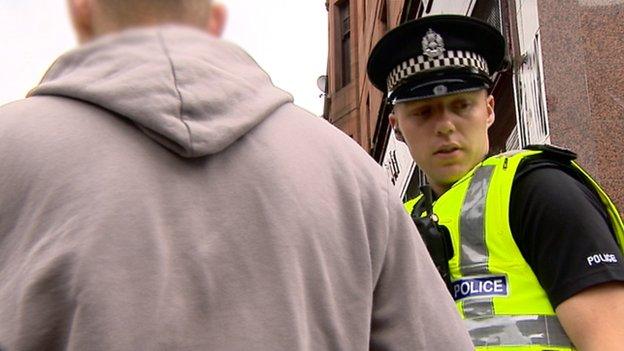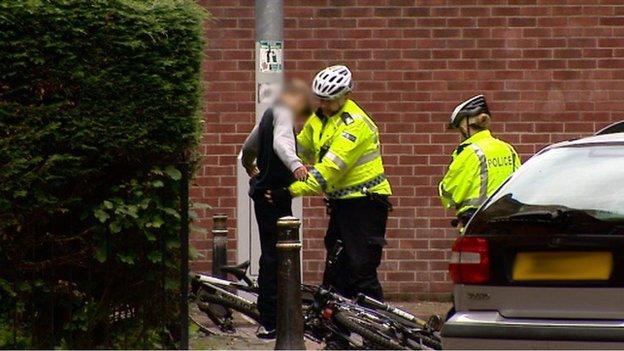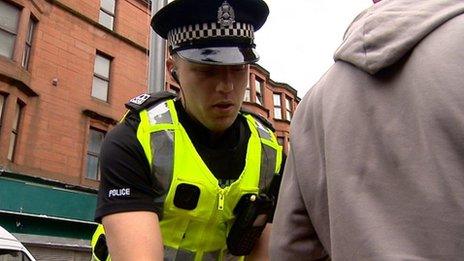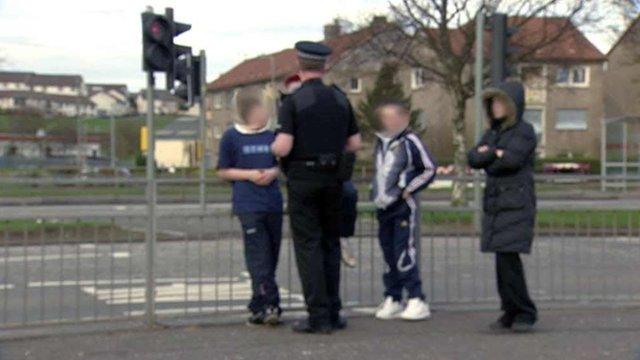Report says stop-and-search should be 'last resort'
- Published

Police carried out more stop-and-searches than usual during the Fife pilot
A new report has urged Police Scotland to end the practice of consensual stop-and-search.
Researchers at Dundee and Napier universities studied a pilot run by Police Scotland's Fife division between November and February, which aimed to improve public perception of search procedures.
The report concluded that "confusion and bad feelings remain".
The authors said stop-and-search should be used only as a "last resort".
The Fife trial was initiated amid public concern about the widespread use of stop-and-search measures. Police have already considered scrapping consensual searches, having already committed to ceasing the practice with under-12s.
New procedures tried out included providing detailed information leaflets to everyone searched, sending letters to the parents of children who had been stopped to make them aware of the event, and increasing opportunities for people to provide feedback after a search.
Researchers evaluating the pilot found that the number of stop-and-searches carried out increased sharply after it was introduced, with the total number of searches 42% higher in the first three months than over the same period the previous year.
The report, external said a "perceived pressure to conduct more stop-searches" was an "unintended outcome" of the trial.

Academics say consensual or non-statutory stop-and-search should be scrapped
Authors Dr Megan O'Neill and Dr Liz Aston noted positive elements and good practice, in particular the will to make stop-and-search "the most effective practice it could be to first and foremost serve the public".
However, they concluded that it should only be used as a "last resort", particularly when dealing with young people.
Dr O'Neill said: "Those searched continued to complain about 'random' searches during the trial, suggesting that even with the pilot's methods of making the option to refuse a consensual search explicit and the advice slips provided by officers, confusion and resulting bad feelings remain.
"In light of this, we would suggest Police Scotland move to a position of using legislative searches only.
"Only these can truly be 'targeted' at 'the right people, right place and right time', thereby enhancing accountability and public confidence, two key aims of the pilot."
Drs O'Neill and Aston are both members of the Scottish Institute for Policing Research, which funded the evaluation along with Police Scotland.
The institute's director Professor Nick Fyfe said the report's 19 recommendations would "inform the development of future policy and practice around stop-and-search in Scotland".
- Published5 February 2015

- Published5 February 2015
- Published4 February 2015

- Published26 November 2014

- Published19 June 2014
